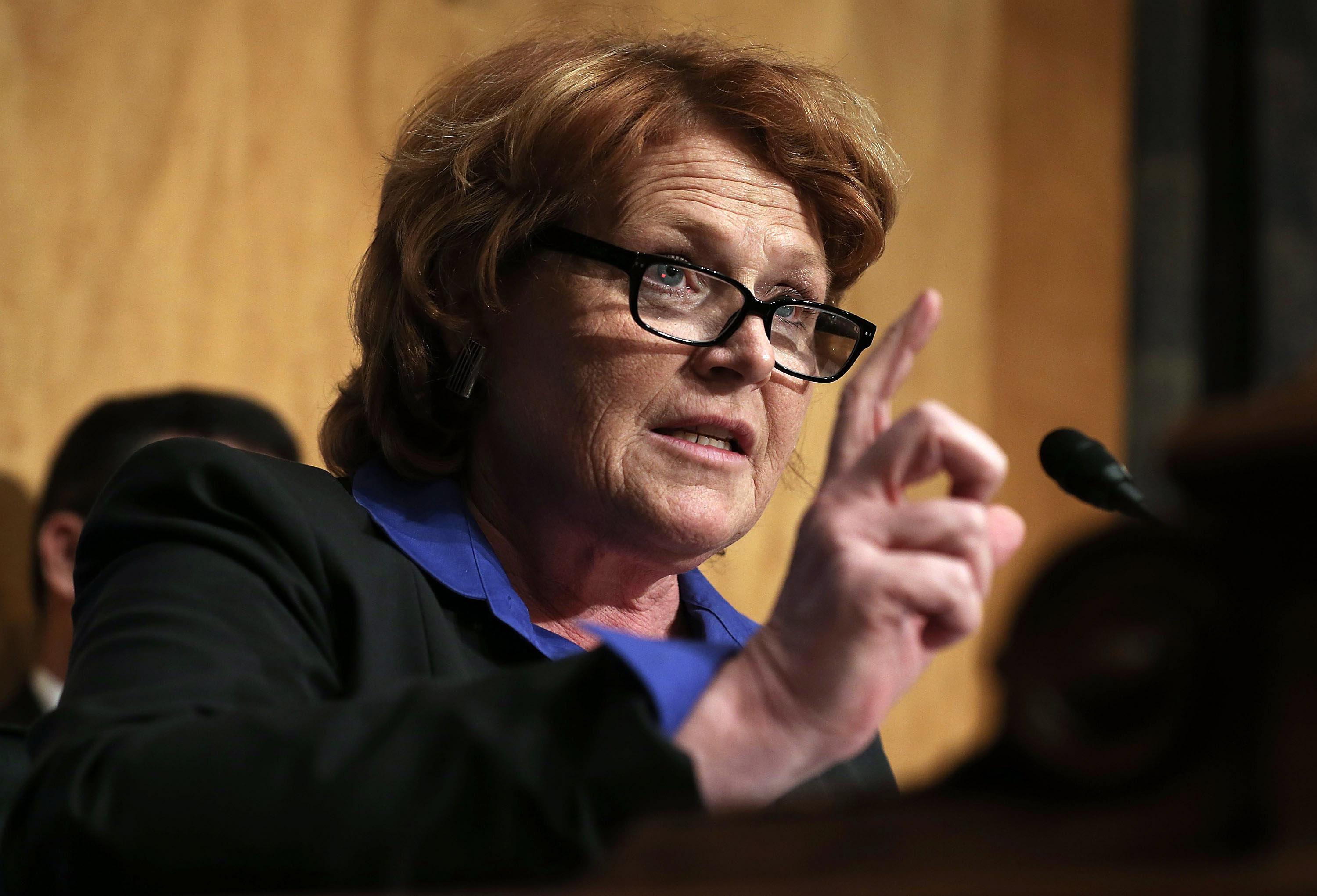When Delaware Sen. Tom Carper evolved on gay marriage, I speculated that Florida Sen. Bill Nelson would be the next to develop the sixth finger. He wasn’t up again until 2018; he had the most to lose then by pissing off liberal donors. And indeed, Nelson underwent the inevitable epiphany.
I wondered who’d drop next. Would the red state Democrats up in 2014 go? They needed liberal money as much as anybody else. Or would it be the Democrats elected this year, who aren’t up until 2018, by which time gay marriage will surely be a majority position?
Door number two. Here’s Indiana Sen. Joe Donnelly, who blazed past Richard Mourdock, the Other Rape Gaffe Candidate, to win last year.
In recent years, our country has been involved in an important discussion on the issue of marriage equality. While serving in the House of Representatives, I had the opportunity to act on a core belief of mine: we are a stronger country when we draw on the strengths of all Americans. I voted to repeal ‘don’t ask, don’t tell’ and was an original supporter of the bill that would make it illegal todiscriminate against someone in the workplace because of their sexual orientation. It is also for that reason that I oppose amending either Indiana’s or our nation’s constitution to enshrine in those documents an ‘us’ and a ‘them,’ instead of a ‘we.’ With the recent Supreme Court arguments and accompanying public discussion of same-sex marriage, I have been thinking about my past positions and votes. In doing so, I have concluded that the right thing to do is to support marriage equality for all.
And here’s North Dakota Sen. Heidi Heitkamp, who’s just an extraordinarily adroit politician.
In speaking with North Dakotans from every corner of our great state, and much personal reflection, I have concluded the federal government should no longer discriminate against people who want to make lifelong, loving commitments to each other or interfere in personal, private, and intimate relationships. I view the ability of anyone to marry as a logical extension of this belief. The makeup of families is changing, but the importance of family is enduring.
Both of these Democrats check the boxes drawn by Benjy Sarlin: Neither of them use the “e” word, evolution, which is fine by me. Nate Silver, because he’s Nate Silver, predicted that gay marriage would be at the cusp of majority support in 2016, and fully there by 2020. (He imagined a North Dakota amendment succeeding narrowly in 2016, and an Indiana amendment failing by 0.3 percentage points.)
Where does that leave the hold-outs? South Dakota Sen. Tim Johnson is retiring this year, but his son Brendan may run to replace him; Silver thinks the state is seven years away from full gay marriage support. West Virginia Sen. Joe Manchin isn’t up again until 2018, and he holds the seat of probably the most vocally anti-gay Democrat of the last 20 years, the late Robert Byrd. But Silver thinks that West Virginia flips by 2017 or so.
That leaves Louisiana Sen. Mary Landrieu and Arkansas Sen. Mark Pryor. If we’re taking Silver’s word as gospel, neither state is going to be “pro-equality” in the next few cycles. In 2004, both states passed gay marriage bans with supermajorities—75 percent in Arkansas, 78 percent in Louisiana.
